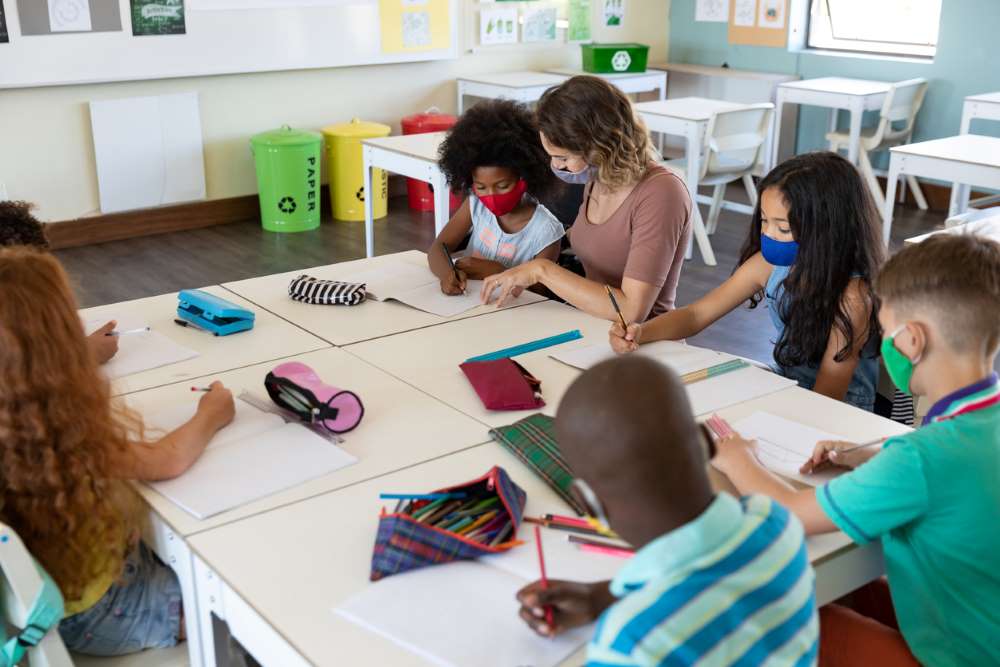
In today's era, it's become more evident than ever that students' social and emotional wellness are the determinants of their educational success. Accordingly, parents and teachers are becoming more aware of the importance of character education and developing children who are connected with their emotions, know how to make decisions, and be able to deal with conflict.
Sometimes, however, that's easier said than done, and support can always come in handy. The home environment complements the school culture and vice versa, which is why both teachers and parents play a role in raising emotionally intelligent students. Below are 6 social and emotional learning strategies for parents and teachers to follow.
Practicing SEL at Home and School
Social-emotional learning is known for its effectiveness in building resilient, strong characters, even during uncertain times. By continuously working on self-management, relationship building, decision making, and more, we function better. While that works for children, it has to start from within you first! Here's how.
1. Maintain Your Own Well-being
Whether you're a parent or a teacher, you can't preach what you don't practice. Therefore, you must first start with your own mental well-being, which entails social and emotional well-being. When you're stressed, anxious, or worried, the child you're dealing with feels it, and the energy is transferred to them!
Integrate some simple habits in your daily routine, like journaling, meditating, jogging, taking a walk, or any other hobby that makes you feel better. When you take care of yourself, you’re able to take care of children.
2. Actively Listen
No two children are identical. Therefore, never make assumptions about what children are thinking or feeling when they take a particular action. It's always best to engage in dialogue together, ask questions, and keep an open ear that's actively listening. Listen before you respond, and avoid making any assumptions.
Also, be careful of how you respond to your child’s feelings. Never dismiss what they’re feeling and always be mindful. That strengthens their acceptance of themselves and helps them make sense of their feelings. Not to mention, they grow to become empathetic with others.
3. Establish Routines
With specific routines and habits, you feel in control of your life. Children feel grounded and secure when they operate on schedules and timelines, especially amid uncertainty. Therefore, create a daily routine convenient for both of you, and make time for social-emotional learning. It could be as short as 5-10 minutes per day.
During that time, you can use a social-emotional learning program such as Positive Action curriculum, to make sure you’re building the right SEL skills at school or at home, to foster an environment where children learn to connect with their emotions, enabling healthier relationships.
4. Stay Creative
Your mind is only as creative as you empower it to be. Take some time to stretch your creativity by engaging in creative activities with the little one you’re dealing with, like playing puzzles, painting, or even playing a board game.
You’ll be surprised by how you’re unlocking doors you were never aware of, and you’ll be having some quality time with your child, who’ll also be unleashing their potential in an activity they enjoy!
5. Appreciate the Small Things
Get used to celebrating the small things, and teach your little one to do so too. Whether you'll celebrate health, a good meal, another day, or being together at home, make a habit of "appreciation." It comes in handy when negative turns of events surround you.
6. Practice Kindness
When you expose yourself to others' hardships and commit acts of service or kindness, you somehow start to appreciate your own life as a whole. And while you help other people, you enhance both your physical and mental health in the process.
And by that, we're not necessarily referring to visiting a homeless shelter or a hospital; it could be a gesture as tiny as calling on someone who lives alone to check up on them. Improve other's lives while improving yours, too!
Final Words
Just like anything else, practice makes perfect! If you employ these 6 social and emotional learning strategies for parents and teachers, you'll witness students' noticeable improvement on all fronts, whether in the classroom or at home. And it's a win-win situation, as you'll be working on your mental well-being as well!



























